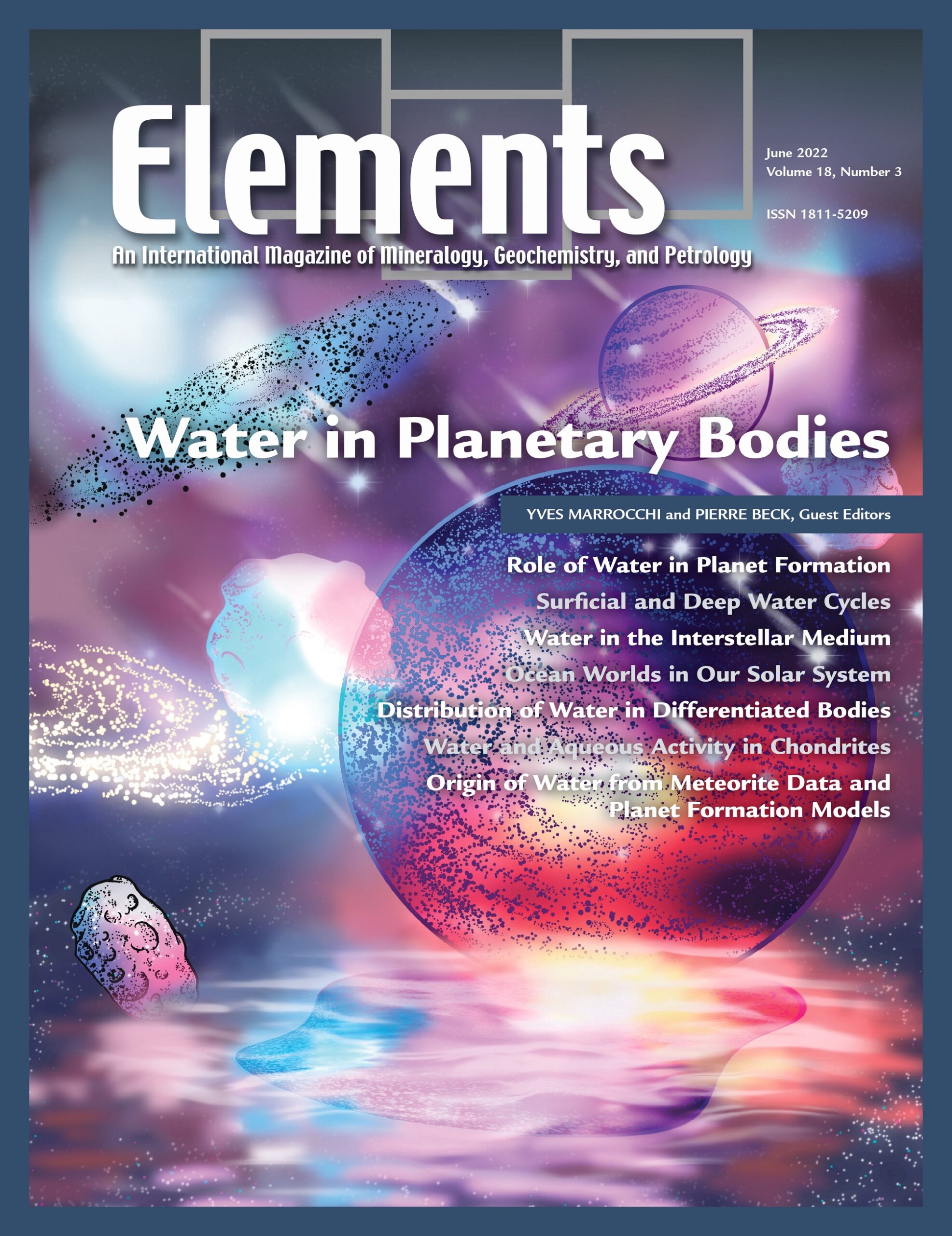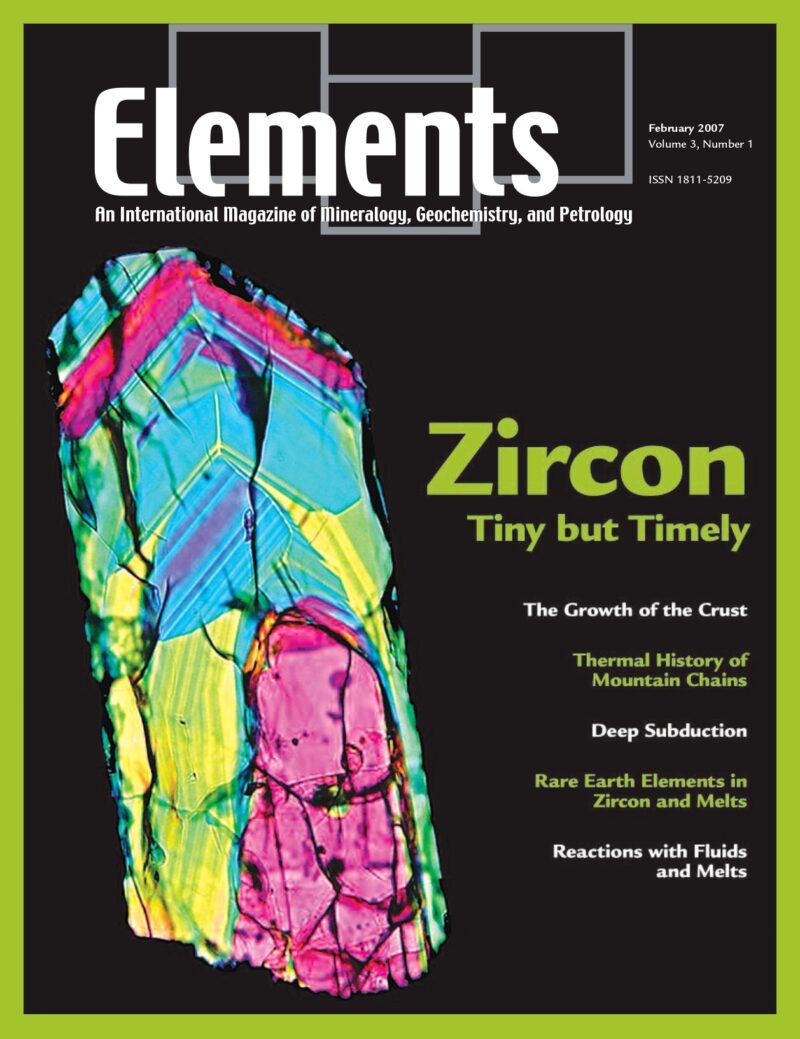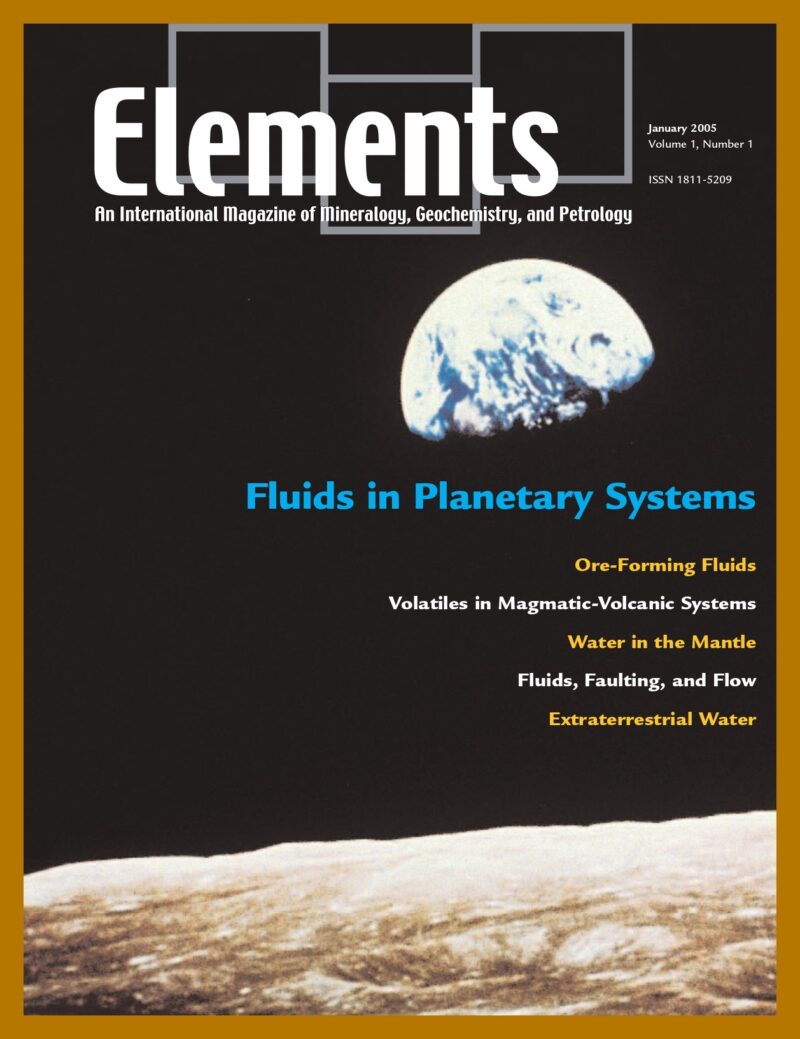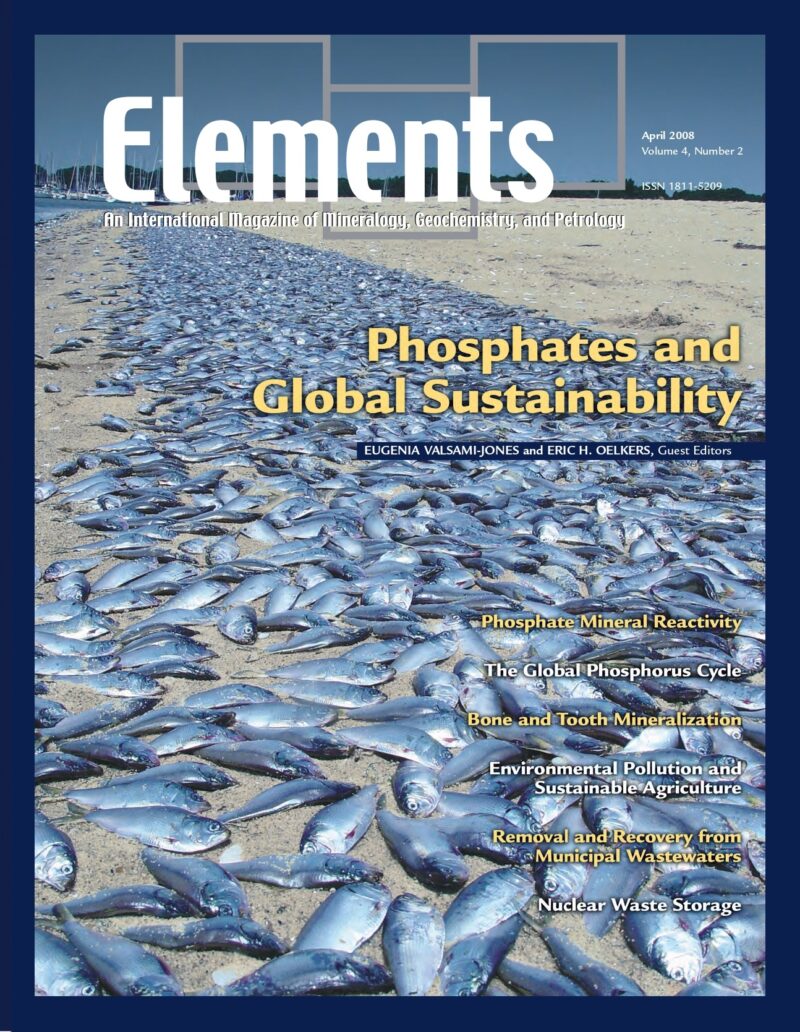
Carbonatites, October 2021, Vol. 17, No. 5
June 28, 2024
Cement And Concrete: From The Romans To Mars, October 2022, Vol. 18, No. 5
June 28, 2024Water In Planetary Bodies, June 2022, Vol. 18, No. 3
$20.00
Despite being a simple molecule, water has played a key role in shaping the Solar System from the formation of early solids to the processes of planetary and moon formation. Through its astrophysical cycle, water has driven the evolution of protoplanetary disks, which, in turn, has affected the water budget of terrestrial planets and, therefore, their geological activities and habitability.
Water In Planetary Bodies
June 2022, Vol. 18, No. 3
Despite being a simple molecule, water has played a key role in shaping the Solar System from the formation of early solids to the processes of planetary and moon formation. Through its astrophysical cycle, water has driven the evolution of protoplanetary disks, which, in turn, has affected the water budget of terrestrial planets and, therefore, their geological activities and habitability. Understanding water’s role in diverse natural processes requires expertise in astrophysics, geophysics, and geochemistry. This issue of Elements will introduce the different environments and processes where water is of fundamental importance, as well as its past and present distribution within the Solar System and how this peculiar molecule affects astrophysical and geological processes.
Why You’ll Love Elements Magazine:
- Expert Contributors: Articles written by renowned researchers in the field of geoscience.
- Engaging Content: Join a community of readers who are passionate about Elements.
- Exceptional Quality: Each issue is printed on high-quality paper with stunning visuals and detailed illustrations that bring complex scientific concepts to life.
Order your copy of the June 2022 issue of Elements magazine today and explore water in planetary bodies.
Related products
-
Zircon – Tiny But Timely, February 2007, Vol. 3, No. 1
$20.00Where would Earth science be without zircon? As Earth’s timekeeper, zircon has proven to be a remarkable and versatile mineral, providing insights into deep time and ancient Earth processes. However, there is still much to learn about Earth’s history from zircon and its behaviour.
-
Fluids in Planetary Systems, January 2005, Vol. 1, No. 1
$20.00Water and other geofluids play an important role in the geochemical and rheological evolution of the Earth and other bodies in the solar system. These fluids are responsible for the formation of hydrothermal mineral deposits, affect eruption behavior in volcanic systems and the geophysical properties of the mantle, and significantly affect the way in which rocks deform and fracture.
-
Phosphates And Global Sustainability, April 2008, Vol. 4, No. 2
$20.00Phosphorus is a unique element: it is essential to the existence of all living forms, and as such controls biological productivity in many terrestrial and marine environments; but when in excess, it leads to uncontrollable biological growth and water-quality problems. This has become a common environmental issue, resulting from our careless use of phosphorus in agriculture, yet phosphate ore deposits, from which fertilizers are produced, are a finite natural resource.




